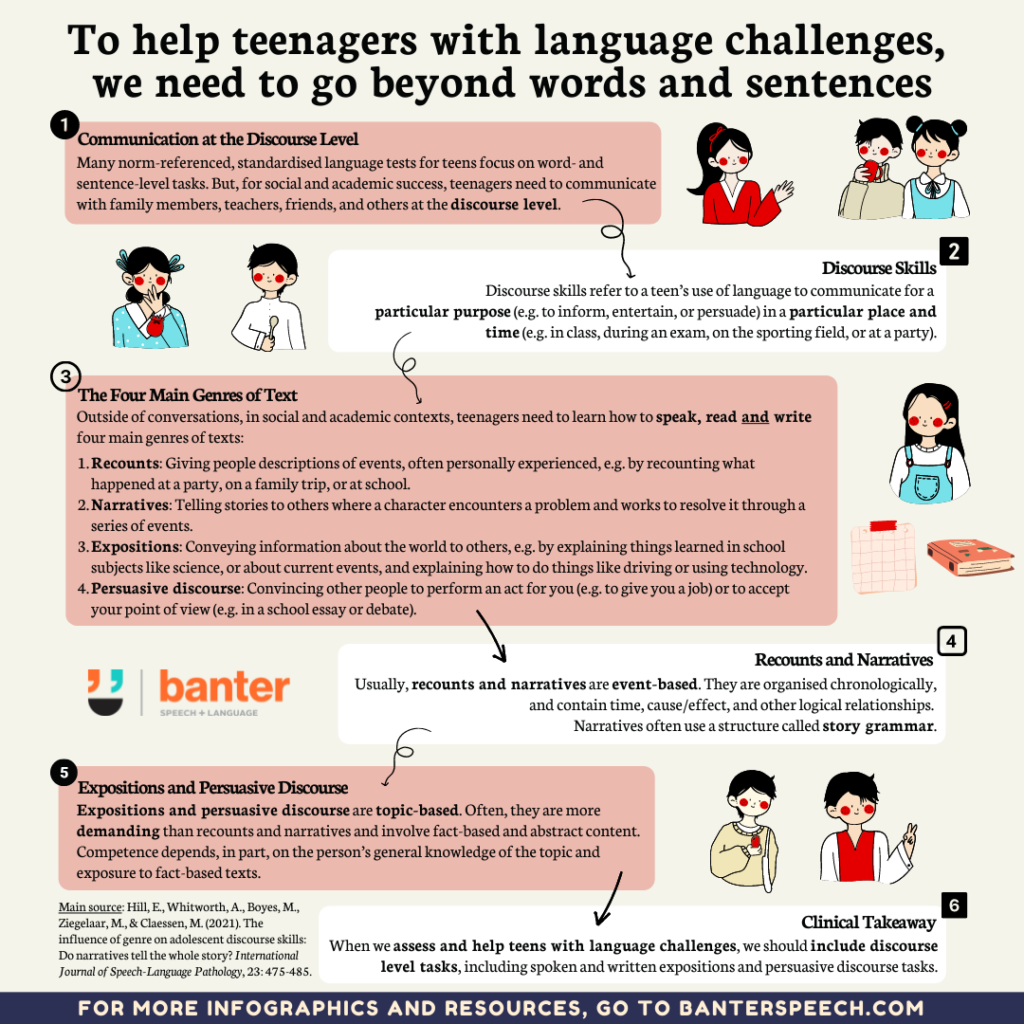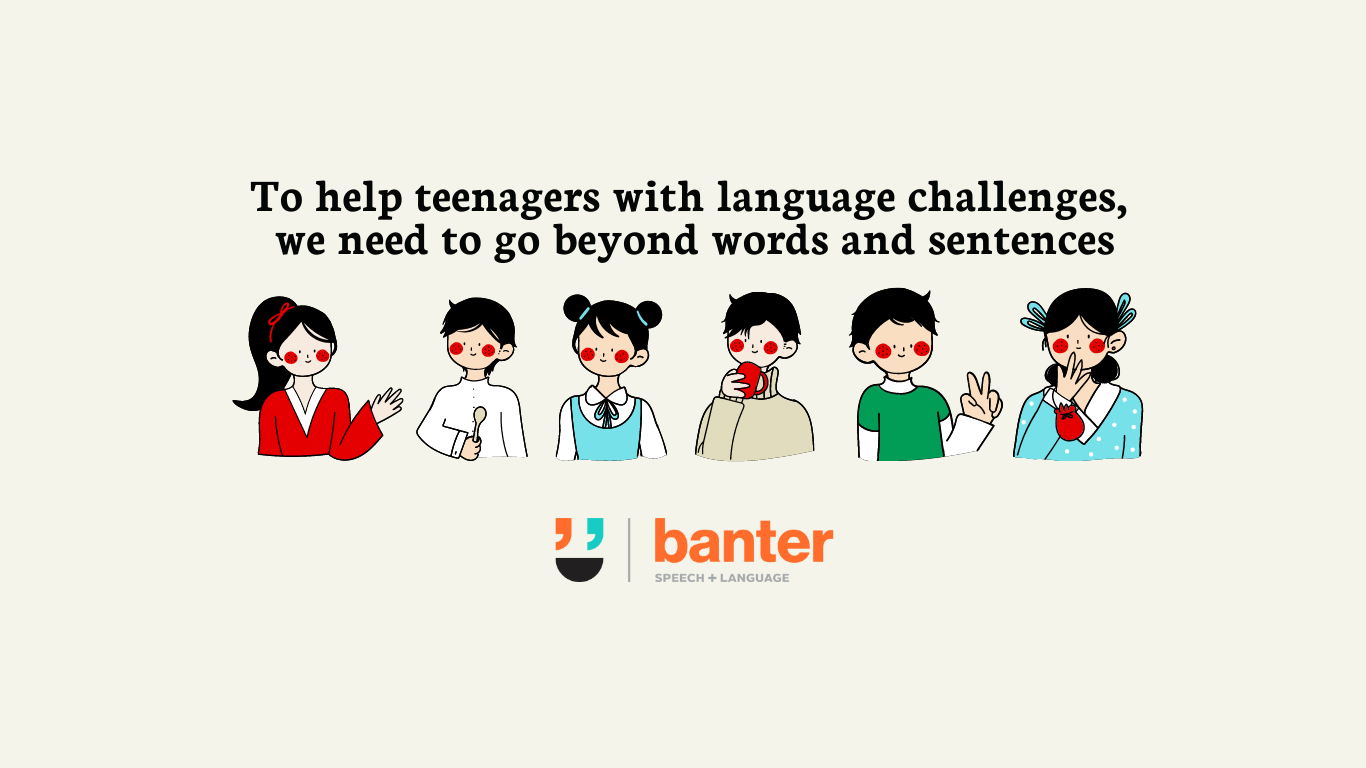Many norm-referenced, standardised language tests for teens focus on word- and sentence-level tasks. But, for social and academic success, teenagers need to communicate with family members, teachers, friends, and others at the discourse level.
Discourse skills refer to a teen’s use of language to communicate for a particular purpose (e.g. to inform, entertain, or persuade) in a particular place and time (e.g. in class, during an exam, on the sporting field, or at a party).
Outside of conversations, in social and academic contexts, teenagers need to learn how to speak, read and write four main genres of texts:
- Recounts: Giving people descriptions of events, often personally experienced, e.g. by recounting what happened at a party, on a family trip, or at school.
- Narratives: Telling stories to others where a character encounters a problem and works to resolve it through a series of events.
- Expositions: Conveying information about the world to others, e.g. by explaining things learned in school subjects like science, or about current events, and explaining how to do things like driving or using technology.
- Persuasive discourse: Convincing other people to perform an act for you (e.g. to give you a job) or to accept your point of view (e.g. in a school essay or debate).
Usually, recounts and narratives are event-based. They are organised chronologically, and contain time, cause/effect, and other logical relationships. Narratives often use a structure called story grammar.
Expositions and persuasive discourse are topic-based. Often, they are more demanding than recounts and narratives and involve fact-based and abstract content. Competence depends, in part, on the person’s general knowledge of the topic and exposure to fact-based texts.
When we assess and help teens with language challenges, we should include discourse level tasks, including spoken and written expositions and persuasive discourse tasks.

Main source: Hill, E., Whitworth, A., Boyes, M., Ziegelaar, M., & Claessen, M. (2021). The influence of genre on adolescent discourse skills: Do narratives tell the whole story? International Journal of Speech-Language Pathology, 23: 475-485.
Related articles:
- How to help our secondary teachers support teenagers with language disorders at school
- 24 practical ways to help school-aged children cope with language and reading problems at school and home
- 10 great words to teach young high-schoolers (and why) – with brilliant free resources!
- Your right to know: long-term social effects of language disorders
- Teenagers with DLD are at risk for peer problems, anxiety and depression but we don’t know why

Hi there, I’m David Kinnane.
Principal Speech Pathologist, Banter Speech & Language
Our talented team of certified practising speech pathologists provide unhurried, personalised and evidence-based speech pathology care to children and adults in the Inner West of Sydney and beyond, both in our clinic and via telehealth.


Leave a Reply